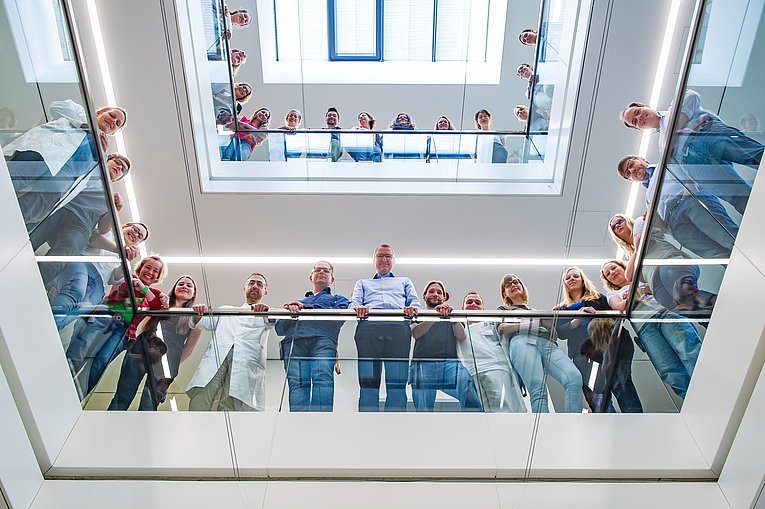Research
The scientific focus of the Department of Hematology/Oncology is the development of new treatment strategies for cellular and humoral immunotherapy of malignant diseases.
In addition, core research projects include studies on the identification and characterization of tumor-specific T-cell responses, on tumor immune escape mechanisms with a focus on tumor metabolites, and on allogeneic stem transplantation with a special emphasis on suppressor cells to modulate the graft-versus host immune responses and effector cells to select for graft versus leukemia responses.
Detailed descriptions of our research activities can be found on the individual groups’ pages:
- adoptive transfer of T cells
- virus specific T cells
- CAR T cells
- tumor-associated Macrophages
- antibody therapy
- Multiple Myeloma
RG Translational T cell Immunology (Kremer)
- tumor infiltrating Lymphocytes
- (Neo)epitope identification
- antigen processing and presentation
RG Microenvironment (Lutzny-Geier)
- 3D-BMSC/Leukemia model
- CAR-T cell functionality
- Mammacarcinoma organoids and metastasis
RG Immune cell- and tumormetabolism (Mougiakakos)
- Immune cell metabolism
- Metabolic tumor targeting
- Immune regulation in autologous and allogeneic stem cell transplantation
Max-Eder Nachwuchsgruppe for molecular Immunetherapy (Müller)
- innovativ approaches for antibody based cancer therapy
- lymphoma induced immun-modulation and impact on CAR T cells
- immunology of the tumor-micromilieu
RG Characterization of novel regulators in allogeneic T cell responses (Spörl)
RG Regulation der T cell immunity (Völkl)
- Regulatory T cells
- Regulation of auto-/alloreactive T cells
- Immune phenotype of T cells / CAR T cells

